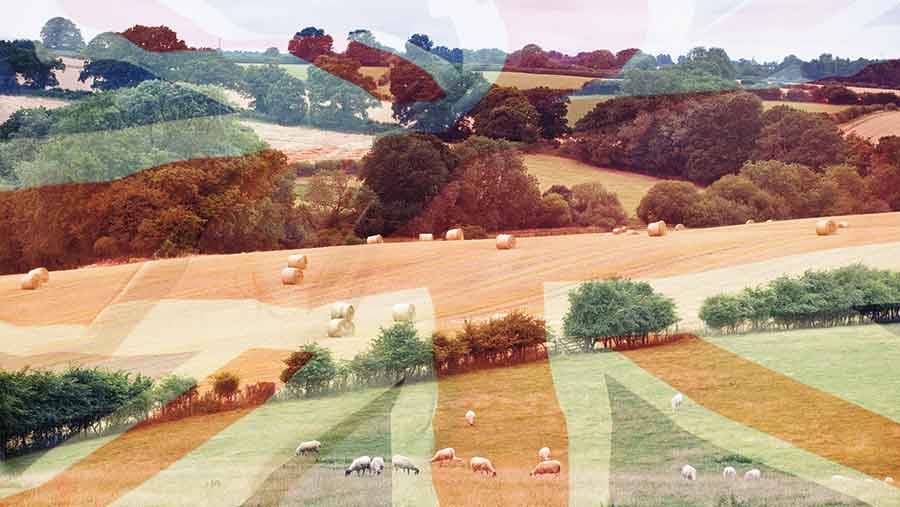Farm industry bodies react to start of Brexit process
 © Tim Scrivener and ING
© Tim Scrivener and ING Prime minister Theresa May’s triggering of Article 50 on Wednesday (29 March) has set the ball rolling on a set, but probably bumpy path towards the UK’s departure from the EU.
Whether this is achieved within two years or not, and whether there is a transition period at the end of it, remains uncertain. But everyone has an opinion on what the priorities should be.
The following is a snapshot of some of the reaction from the main farming bodies to the Article 50 process:
NFU Cymru
“The prime minister has previously said that ‘no deal is better than a bad deal’. However, the sort of hard Brexit which would see the UK leave the EU in spring 2019, not having secured a trade agreement, would be extremely damaging to Wales’ farmers.
“Our exports would then become subject to [World Trade Organization] default tariffs, which are particularly high for agricultural products.”
See also: 50 farmers have their say as PM triggers Article 50
Tenant Farmers Association
“Access to labour for agricultural and ancillary businesses has been a major talking point in the lead-up to the triggering of notice under Article 50.
“Despite the hyperbole over immigration, we are beginning to appreciate the extent to which we are reliant upon EU migrant labour, both on our farms and in food-processing plants.
“The government appears to understand that we will need to continue to have access to seasonal labour. However, we will also need an arrangement which allows us to attract non-seasonal labour on a needs basis, whilst we work with the government to build the capacity to fill these jobs from domestic sources into the long run.”
NFU Scotland
“In the nine months since the EU referendum outcome, NFU Scotland has built a positive case seeking continued free trade with the EU; new, ambitious international trade deals; access to a non-UK labour pool and a well-funded, refreshed agricultural policy that fits our unique needs.
“We repeat our view that a ‘Defra-centric’ one-size-fits-all agricultural approach for the whole of the UK would be wrong.
“Scotland should determine the priorities for its own properly funded agricultural policies and link together with the other parts of the UK on joint initiatives where appropriate and mutually beneficial.”
Copa-Cogeca (EU farmers’ body)
“We regret the UK’s decision to launch Brexit proceedings. With this decision of the UK government, we believe that farmers and agri-businesses on both sides will be hit hard.
“Copa and Cogeca have serious concerns about the potential trade and budget impact of Brexit on European farmers and their co-operatives.
“We believe that farmers and their families shouldn’t have to pay the price of Brexit.
“The UK is a net contributor to the EU budget. We expect the UK government to honour its commitments in the current EU budget framework, and also programmes that it subscribed to which go beyond 2020.”
Agricultural Industries Confederation
“With Article 50 now triggered, the Agricultural Industries Confederation supports the UK government’s determination that trade negotiations need to commence alongside the exit debate, to avoid jeopardising Britain’s vital food and farming industries.
“Failure to address future trade arrangements, at an early stage, could undo all the good that has been achieved in recent years in terms of the assurance of food and animal feed safety and quality throughout supply chains in recent years.”
Farmers Union of Wales
“Time is running out fast, and moving forward in terms of developing a UK framework for agriculture is just one element of that work.
“A UK agricultural framework should be put in place which prevents unfair competition between devolved regions and secures adequate long-term funding for agriculture.
“But we cannot have an ‘England-centric’ solution imposed on us by the UK government.”
National Pig Association
“As prime minister Theresa May triggers Article 50, the NPA is calling for steps to protect pig producers and consumers, including equivalent standards for meat imports and, if necessary, tariffs and quotas where standards fall short.
“The association also wants to see strict labelling laws put in place to provide clarity for consumers over differences in production standards.”
